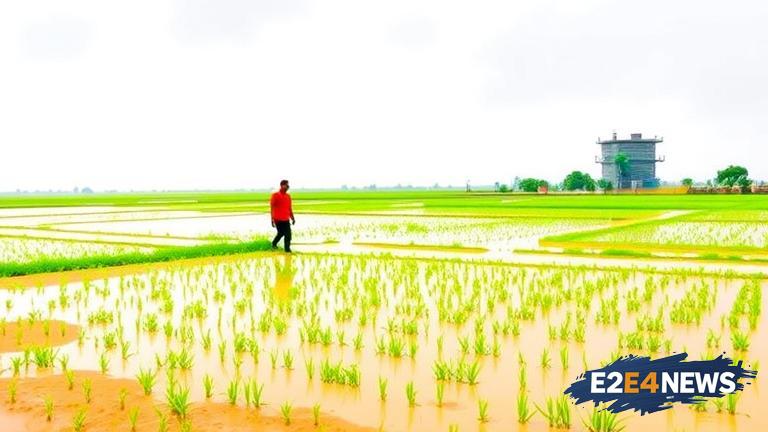The recent heavy rainfall in Haryana’s Rohtak district has caused widespread damage to crops, leaving farmers in a state of distress. The excess water has submerged large tracts of land, affecting the livelihoods of many farmers who depend on agriculture for their income. The farmers are now urging the administration to step up dewatering efforts to prevent further damage to their crops. The situation is particularly dire in the low-lying areas, where the water has been stagnant for several days. The farmers are worried that if the water is not drained soon, their crops will be completely destroyed, leading to significant financial losses. The administration has been appealed to provide adequate support to the farmers, including compensation for the damaged crops. The farmers are also demanding that the administration take measures to prevent such flooding in the future, such as constructing proper drainage systems. The heavy rainfall has not only affected the crops but also disrupted the daily lives of the people living in the affected areas. The roads have been flooded, making it difficult for people to commute, and the waterlogging has also led to an increase in mosquito-borne diseases. The farmers are also concerned about the long-term effects of the flooding on the soil quality and the overall ecosystem. The administration has assured the farmers that it will take all necessary steps to mitigate the situation, but the farmers are skeptical about the effectiveness of these measures. The opposition parties have also criticized the government for its handling of the situation, alleging that it has failed to provide adequate support to the farmers. The situation in Rohtak is a stark reminder of the vulnerability of the agricultural sector to climate change and the need for the government to take proactive measures to support the farmers. The farmers are hoping that the administration will take their demands seriously and provide them with the necessary support to recover from the losses. The government has announced a relief package for the affected farmers, but the farmers are demanding more concrete actions to prevent such disasters in the future. The flooding has also highlighted the need for better infrastructure and planning to prevent waterlogging and flooding in the region. The farmers are determined to fight for their rights and are planning to stage protests if their demands are not met. The situation is being closely monitored by the state government, and the farmers are hoping for a positive outcome.
